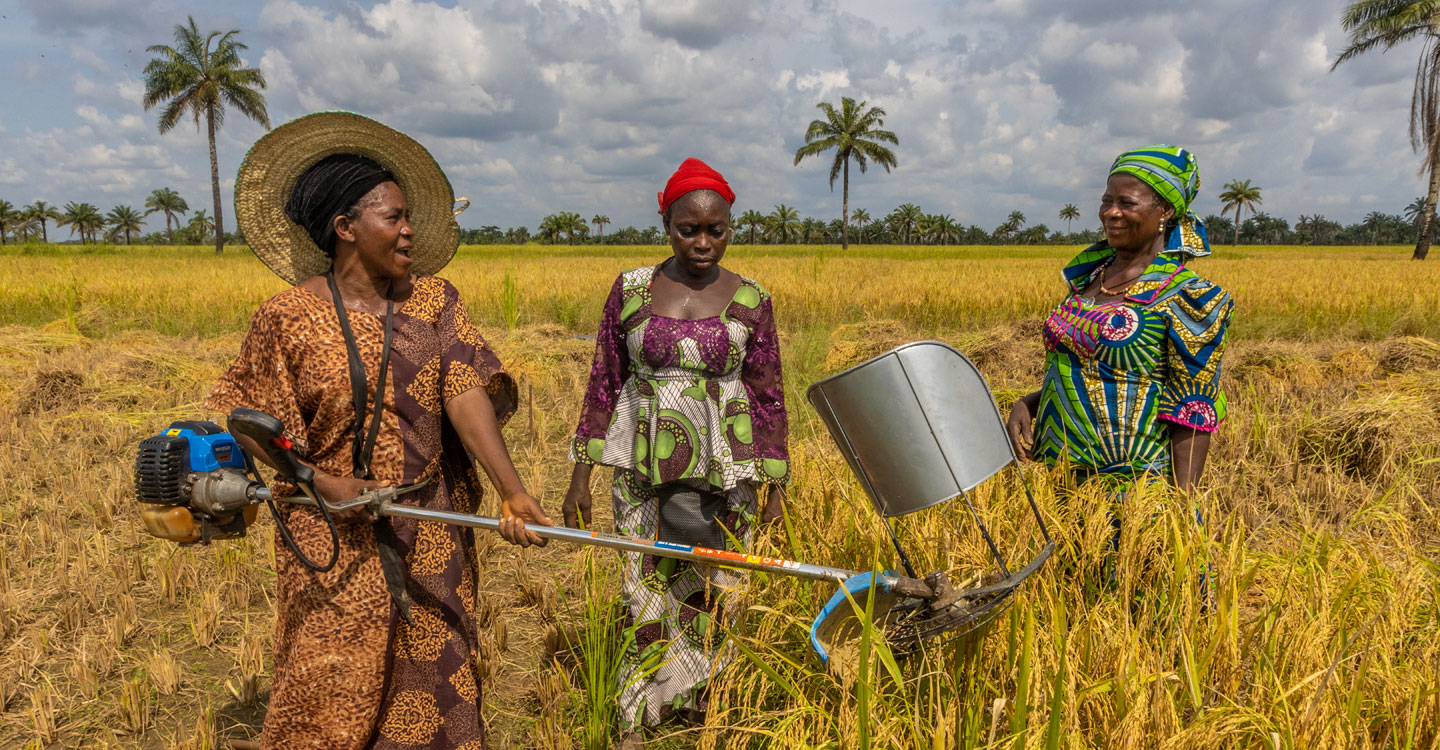
Empowering Rural Women and Youth: IFAD’s Focus Areas
The International Fund for Agricultural Development (IFAD) has long recognized the pivotal role that rural women and youth play in the development of agricultural sectors and rural economies worldwide. With a mission to eradicate poverty and hunger in rural areas, IFAD is committed to empowering these groups, understanding that their active participation is essential for sustainable development. By focusing on rural women and youth, IFAD aims to create inclusive opportunities that not only enhance their livelihoods but also contribute to the overall resilience of rural communities.
Empowering rural women and youth is not merely a matter of social justice; it is a strategic approach to fostering economic growth and sustainability. IFAD’s initiatives are designed to address the unique challenges faced by these demographics, including limited access to resources, financial services, and decision-making processes. By prioritizing their empowerment, IFAD seeks to unlock the potential of these groups, enabling them to become key drivers of change within their communities.
Access to Financial Services and Resources for Rural Women and Youth
Enhancing Financial Inclusion
These initiatives include establishing microfinance institutions, promoting savings groups, and facilitating access to credit tailored specifically for rural populations. By providing training on financial literacy and management, IFAD equips rural women and youth with the skills necessary to navigate financial systems effectively. This empowerment enables them to make informed decisions about investments, savings, and expenditures.
Empowering Rural Communities
Furthermore, IFAD collaborates with local banks and financial institutions to develop products that cater to the unique needs of rural communities, ensuring that financial services are accessible and relevant.
Improving Quality of Life
As a result, many women and youth have been able to start their own businesses, invest in education, and improve their overall quality of life.
Long-Term Impact
Capacity Building and Skills Development for Rural Women and Youth
Capacity building is another critical area where IFAD focuses its efforts. Recognizing that knowledge and skills are essential for sustainable development, IFAD invests in training programs that enhance the capabilities of rural women and youth. These programs cover a wide range of topics, including agricultural techniques, entrepreneurship, leadership, and digital literacy.
By equipping individuals with practical skills, IFAD empowers them to take charge of their economic futures. Moreover, IFAD emphasizes the importance of mentorship and peer learning in its capacity-building initiatives. By fostering networks among rural women and youth, participants can share experiences, challenges, and solutions.
This collaborative approach not only enhances individual skills but also strengthens community ties. As a result, empowered individuals are more likely to contribute positively to their communities, driving collective progress and innovation.
Promoting Gender Equality and Women’s Rights in Rural Communities
Promoting gender equality is at the heart of IFAD’s mission. The organization understands that empowering women is crucial for achieving broader development goals. In many rural communities, traditional norms often limit women’s rights and opportunities.
IFAD actively works to challenge these norms by advocating for women’s rights and promoting gender-sensitive policies. Through awareness campaigns and community engagement, IFAD seeks to change perceptions about women’s roles in agriculture and decision-making processes. Additionally, IFAD collaborates with local governments and organizations to implement policies that support gender equality.
This includes advocating for land rights for women, ensuring access to education, and promoting women’s participation in local governance. By creating an enabling environment for women, IFAD helps dismantle barriers that hinder their progress. As a result, women are increasingly recognized as vital contributors to agricultural productivity and community development.
Improving Agricultural Productivity and Market Access for Rural Women and Youth
Agricultural productivity is a key focus area for IFAD when it comes to empowering rural women and youth. The organization recognizes that enhancing agricultural practices can lead to increased food security and improved livelihoods. To achieve this, IFAD provides training on modern farming techniques, sustainable practices, and crop diversification.
By equipping rural populations with knowledge about innovative agricultural methods, IFAD helps them maximize their yields. In addition to improving productivity, IFAD also emphasizes the importance of market access for rural women and youth. Many smallholder farmers face challenges in reaching markets due to inadequate infrastructure or lack of information about market demands.
IFAD addresses this issue by facilitating connections between producers and buyers through market linkages and value chain development initiatives. By empowering rural women and youth to access markets effectively, IFAD enables them to sell their products at fair prices, thereby increasing their income potential.
Empowering Rural Communities through Climate-Smart Agriculture
IFAD promotes climate-smart agricultural practices that enhance resilience against climate-related shocks. This includes training on water management, soil conservation, and sustainable land use practices.
Renewable Energy Solutions for Rural Areas
Furthermore, IFAD encourages the adoption of renewable energy solutions in rural areas. By providing access to clean energy sources such as solar power, rural communities can reduce their reliance on fossil fuels while improving their quality of life.
Empowering Women and Youth through Green Technologies
These initiatives not only contribute to environmental sustainability but also empower women and youth by providing them with new opportunities for income generation through green technologies.
Strengthening Rural Institutions and Governance for Women and Youth
Effective governance is essential for creating an enabling environment for the empowerment of rural women and youth. IFAD works to strengthen local institutions that support these groups by promoting participatory governance models. This involves engaging women and youth in decision-making processes at the community level, ensuring that their voices are heard in matters that affect their lives.
By fostering leadership skills among rural women and youth, IFAD helps them take on active roles within their communities. This empowerment leads to more inclusive governance structures where diverse perspectives are considered in policy-making. As a result, local institutions become more responsive to the needs of all community members, ultimately contributing to more equitable development outcomes.
Monitoring and Evaluation of IFAD’s Programs for Empowering Rural Women and Youth
To ensure the effectiveness of its initiatives aimed at empowering rural women and youth, IFAD places great emphasis on monitoring and evaluation (M&E). The organization employs robust M&E frameworks that assess the impact of its programs on target populations. By collecting data on key indicators such as income levels, access to services, and participation in decision-making processes, IFAD can gauge the success of its interventions.
Moreover, M&E activities provide valuable insights that inform future programming decisions. By analyzing successes and challenges faced by rural women and youth, IFAD can adapt its strategies to better meet their needs. This commitment to continuous improvement ensures that IFAD remains responsive to the evolving landscape of rural development while maximizing its impact on empowering these vital groups. In conclusion, IFAD’s comprehensive approach to empowering rural women and youth encompasses various dimensions including access to financial services, capacity building, gender equality promotion, agricultural productivity enhancement, climate change adaptation, governance strengthening, and rigorous monitoring and evaluation. Through these multifaceted efforts, IFAD not only addresses immediate challenges faced by these groups but also lays the groundwork for sustainable development in rural areas worldwide. As the organization looks toward the future, its commitment to empowering rural women and youth remains steadfast—a testament to the belief that when these groups thrive, entire communities flourish.

Mrs Vicky m Bournel has made this magazine proud. She is not only an Author from America for Lakkars Magazine she is the Chief Editor of Lakkars Magazine for the articles.


